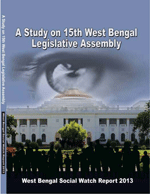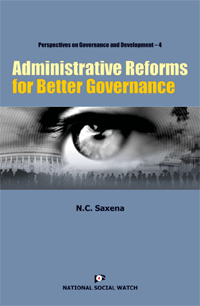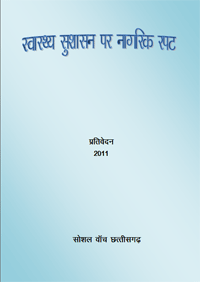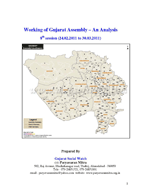India
Published on Thu, 2013-12-05 08:16
West Bengal Social Watch Report 2013 A Study on 15th West Bengal Legislative Assembly |
| Published on Sun, 2013-07-07 00:00 |
Published on Thu, 2013-05-02 12:15
La forte croissance économique de l'Inde a permis au gouvernement de mobiliser les ressources nécessaires pour atteindre les Objectifs du Millénaire pour le développement (OMD) d'ici 2015. Malgré cela, le pays n'a pas atteint la plupart des objectifs et des buts. Les raisons principales sont le manque de financement, la mauvaise gestion et l'ignorance des questions concernant la politique et le gouvernement. En fin de compte, cependant, le problème est dû à l'absence d'inclusion dans le modèle de développement. Au lieu de permettre aux gens d'atteindre les besoins de base, tels que la nourriture, l'assainissement, l'eau ou la santé, le gouvernement favorise la « croissance non inclusive " et a tenté de fournir des services de base via des subventions avec les problèmes y associés d'inefficacité et de corruption. |
|
Unlike many developing countries, India’s economy has been growing at a fast pace, enabling the government to mobilize the necessary resources internally for the achievement of the Millennium Development Goals (MDGs) by 2015. Its dependence on international aid, especially for financial resources is minimal; in fact it has declined bilateral aid from many countries. Despite this, however, the country has failed to achieve most of the goals and targets. The main reasons for this are inadequate funding, inappropriate administration and ignorance of policy and governance issues. Ultimately however, the failure is due to the absence of inclusiveness in the development model. Instead of enabling people to acquire basic needs such as food, sanitation, water, health care, the government is promoting ‘non-inclusive growth’ and has sought to provide basic services through subsidies with the associated problems of inefficiency and corruption.
The organized sector, which provides quality employment, employs only 12% to 13% of the workforce. The remaining 87% are relegated to agriculture and the informal sector with low and uncertain earnings. The crisis in agriculture, seen in the millions of farmers’ suicides, is now being exacerbated by climate change. Although the government has prepared an ambitious climate change action plan, the focus so far in implementing the plan is limited to investment and technology, ignoring critical issues such as equity, institutional capacity and good governance.
|
| Source: . Published on Fri, 2013-02-08 23:00 |
Published on Tue, 2012-12-11 23:00
Perspectives on Governance and Development – 4 Social Watch India, 2012. |
| Published on Tue, 2012-12-11 23:00 |
|
Le manque de planification à long terme qui a caractérisé les Gouvernements de l’Inde se perçoit clairement dans sa croissance démographique et dans l’augmentation des émissions de CO2. Les « missions » récemment proposées (ou initiatives en faveur du développement durable) non seulement sont insuffisantes mais leur efficacité, même minimum, reste à prouver. Les récents amendements à Loi sur l’Acquisition des terres de 1984, longuement critiquée, manquent de clarté et leur façon d’aborder les problèmes législatifs laisse à désirer. Le Gouvernement doit encourager pleinement les sources d’énergie renouvelables et inclure dans la planification du développement la gestion du risque climatique. S’il ne le fait pas, tous les horizons du pays seront sombres.
|
| Published on Sun, 2011-12-11 23:00 |
Published on Sun, 2011-12-11 23:00
Working of Gujarat Assembly – An Analysis 8th session (24.02.2011 to 30.03.2011) |









